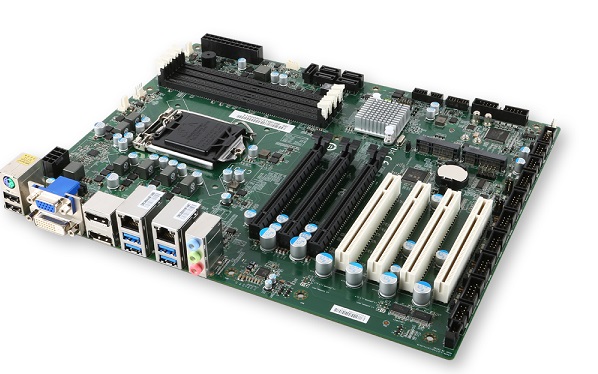The motherboard is the main component of a computer system. It is a printed circuit board that connects all the parts of a computer.
The motherboard acts as the backbone for all other components in a computer system. It connects the CPU, memory, and other components to each other and power. The motherboard also provides additional features such as sound, networking, and graphics support.
Motherboards are a vital component of a desktop PC. There are many reasons why a motherboard can fail. They can be caused by the power supply, the CPU, or even the memory. The failure of a motherboard will result in system instability and eventual shutdown.

The Causes of Motherboard Failure
There are many causes for the failure of the motherboard. Here are the most common 8 reasons that will explain to you why it gets failure.
Too high of CPU voltage:
Voltage is a measure of the potential difference between two points in a circuit. It is the amount of energy per unit of charge that moves along an electric circuit.
Too high voltage can cause electrical current to increase and it can result in the motherboard failing. The motherboard regulates the power supply and controls all other components in your computer.
The motherboard might be damaged if it is connected to an unstable power source or if there are other problems with the computer’s power supply.
Overclocking the CPU too much.
Overclocking is the process of increasing the operating frequency of a microprocessor. It is often used by computer enthusiasts to make their systems run faster, but it can also be used to make systems more stable.
It is important to note that overclocking can cause permanent damage to the motherboard. Overclocking will cause the system’s voltage and current load to increase, which might lead to a power surge or other electrical problems that could fry your motherboard.
Low-quality RAM or memory errors
A motherboard can fail because of low-quality RAM or memory errors. If this happens then it could cause the motherboard to fail. The other reason why a motherboard might fail is because of incorrect power supply voltage or incorrect input voltage to the processor.
Lack of power to the motherboard
A lack of power to the motherboard causes the motherboard to fail. To prevent this, it’s important to ensure that the computer is plugged in and that there is a stable power source.
The power shortage causes the motherboard to fail because, without electricity, there is no way for it to function properly. This can be avoided by ensuring that the computer is plugged in and has a stable power source.
Heating Problem
Overheating issues with the CPU or motherboard due to lack of proper ventilation, dust, and other particles in the air can cause overheating problems for sensitive electronics like motherboards and CPUs
Improper Installation
A bad installation of the motherboard into a case or improper assembly of components inside the case can cause damage to either component or other components close to it 7
Power surges
Power surges from power outages, storms, etc., which can fry your motherboard if your system is not properly protected by a surge protector
Damaged pins
It is important to check the motherboard of your computer for any damages. Damaged pins can cause the motherboard to fail and may lead to more serious issues. One of them is due to a fall or an accident, which can cause some pins on the board to bend and break off. This will cause the motherboard to fail and might lead to more serious issues such as data loss or hardware damage.
You must check your computer’s motherboard for any damages before it gets worse and leads you into a lot of trouble.
Also Read: Are Supermicro motherboards good?
How to prevent Motherboard Failures?
When motherboards fail, they often will have to be replaced which can be costly to the computer owner. However, there are some things that you can do to try and prevent the motherboard from failing in the first place.
Motherboard failures can be prevented by following a few simple steps.
- The motherboard is in a stable environment and it has enough airflow.
- The Motherboard has enough power and it doesn’t overheat.
- The Motherboard isn’t exposed to any liquids or dust, which can cause electrical shorts.
It’s important for people who work with computers regularly to know how to prevent motherboards from failing.
What is the perfect solution for motherboard failure?
One of the most common issues with a computer is the failure of the motherboard. A faulty power supply, over-clocking, excessive heat, or some other issue can cause the motherboard to fail. This section will discuss some of the best solutions for motherboard failure.
The best solution is to replace your motherboard with a new one, which is available in the market. If your computer is still under warranty, it may be possible for you to get a new motherboard free of charge. However, if your computer is out of warranty or you don’t want to spend more money on a new one, then there are other solutions that you can try.
Conclusion
There are many reasons why a motherboard may fail. It may be due to overheating, insufficient power supply, or a defective component. The article concludes that many things can cause a motherboard to fail and this article has explained them all.
